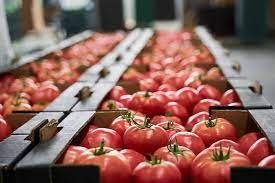Perishable Product Handling Specialist

Introduction:
In today’s interconnected world, the demand for perishable products like fresh produce, dairy, seafood, and meats continues to grow. With this demand comes the critical responsibility of ensuring these products reach consumers’ tables in optimum condition – fresh, safe, and free from contamination. This is where the expertise of perishable product handling specialists becomes indispensable. These professionals play a vital role in every step of the supply chain, from procurement to delivery, ensuring that perishable goods maintain their quality and integrity throughout the process.
Understanding the Role of Perishable Product Handling Specialists:
Perishable product handling specialists are highly skilled professionals who specialize in the management and transportation of perishable goods. Their primary objective is to preserve the freshness and quality of these products while minimizing waste and adhering to strict safety standards. Their role encompasses a wide range of tasks, including:
- Procurement and Sourcing: Perishable product handling specialists are involved in sourcing high-quality products from reliable suppliers. They evaluate factors such as freshness, ripeness, and quality to ensure that only the best products are selected for distribution.
- Storage and Inventory Management: Proper storage is crucial for maintaining the freshness of perishable goods. Perishable product handling specialists oversee storage facilities, ensuring that temperature, humidity, and other environmental conditions are optimized to preserve the products’ quality. They also manage inventory levels, implementing systems to track expiration dates and minimize waste.
- Packaging and Handling: Packaging plays a critical role in preserving the quality of perishable products during transportation. Perishable product handling specialists are responsible for selecting appropriate packaging materials and methods to prevent spoilage, contamination, and damage. They also ensure that products are handled carefully to avoid bruising or other forms of physical damage.
- Transportation and Logistics: Efficient transportation is essential for ensuring that perishable products reach their destination in a timely manner. Perishable product handling specialists work closely with logistics companies to plan and coordinate transportation routes, taking into account factors such as temperature control, transit times, and delivery schedules. They may also oversee the loading and unloading of products to ensure proper handling.
- Quality Control and Safety Compliance: Maintaining the safety and quality of perishable products is paramount. Perishable product handling specialists implement rigorous quality control measures to detect and address any issues that may arise during storage or transportation. They also ensure compliance with food safety regulations and standards set by regulatory agencies.
Challenges Faced by Perishable Product Handling Specialists:
Handling perishable products poses unique challenges that require specialized knowledge and skills. Some of the common challenges faced by perishable product handling specialists include:
- Temperature Management: Maintaining the appropriate temperature throughout the supply chain is critical for preserving the freshness of perishable products. Fluctuations in temperature can accelerate spoilage and compromise product quality. Perishable product handling specialists must carefully monitor temperature levels and implement measures to prevent deviations.
- Time Sensitivity: Perishable products have a limited shelf life and must be delivered to consumers within a specified timeframe. Delays in transportation or inefficient logistics can result in product spoilage and financial losses. Perishable product handling specialists must work quickly and efficiently to ensure timely delivery while minimizing transit times.
- Food Safety Regulations: The handling of perishable products is subject to stringent food safety regulations and standards. Perishable product handling specialists must stay updated on relevant regulations and ensure compliance to prevent foodborne illnesses and other safety issues.
- Seasonality and Supply Chain Disruptions: The availability of perishable products can vary seasonally, posing challenges for procurement and distribution. Additionally, supply chain disruptions such as natural disasters or transportation issues can impact the timely delivery of perishable goods. Perishable product handling specialists must be prepared to adapt to these challenges and implement contingency plans to minimize disruptions.

The Importance of Perishable Product Handling Specialists:
Perishable product handling specialists play a crucial role in ensuring the availability of fresh, safe, and high-quality products for consumers. Their expertise and attention to detail help to minimize waste, reduce foodborne illnesses, and maintain the integrity of the supply chain. By optimizing storage, transportation, and handling processes, perishable product handling specialists contribute to the overall efficiency and sustainability of the food industry.
In addition to their operational responsibilities, perishable product handling specialists also play a vital role in educating stakeholders about best practices for handling perishable products. They provide training and guidance to suppliers, distributors, and transportation partners to ensure that everyone involved in the supply chain is aware of their responsibilities and adheres to established protocols.
Conclusion:
Perishable product handling specialists are essential members of the food industry, responsible for ensuring that perishable goods reach consumers in optimal condition. Their expertise in procurement, storage, transportation, and quality control is critical for preserving the freshness, safety, and quality of perishable products. By addressing the unique challenges associated with handling perishable goods, these professionals help to minimize waste, reduce foodborne illnesses, and maintain consumer confidence in the safety and integrity of the food supply chain. As the demand for perishable products continues to grow, the role of perishable product handling specialists will only become more crucial in ensuring a sustainable and efficient food system.
